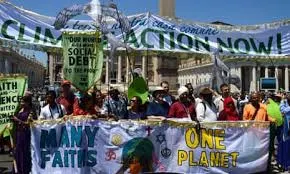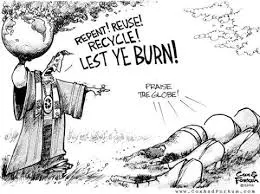Discover how faith communities worldwide are driving climate change activism through spiritual leadership, eco-theology, and community action.
How Faith Communities Are Leading the Climate Movement
Around the world, a growing number of religious leaders and faith-based organizations are taking bold steps to combat climate change. What was once seen as a strictly scientific or political issue is now becoming a powerful moral and spiritual cause. The fusion of religion and climate change activism is reshaping how communities think about environmental stewardship—and how they act.

Faith as a Call to Stewardship
Many religions include teachings that call on believers to protect the Earth. In Christianity, the idea of “creation care” is rooted in the Bible, which refers to humanity’s duty to be stewards of the Earth. In Islam, environmental responsibility is part of the concept of “khalifa,” or stewardship. Hinduism speaks of balance in nature, while Buddhism emphasizes compassion for all sentient beings, including animals and ecosystems.
These teachings are now fueling real-world climate activism. Pope Francis, for example, made headlines with his 2015 encyclical Laudato Si’, which urged Catholics to take climate change seriously. He called environmental degradation “a sin” and climate inaction “an offense to God.”
Faith-Based Climate Movements Grow
Faith-based environmental groups are on the rise. Organizations like GreenFaith, Interfaith Power & Light, and the Islamic Foundation for Ecology and Environmental Sciences are engaging communities across religions.
GreenFaith, a global, multi-faith organization, has launched climate strikes, divestment campaigns, and educational programs across dozens of countries. Their message is clear: protecting the planet is not only a political or ethical issue—it’s a spiritual obligation.
In the U.S., churches are installing solar panels and hosting climate awareness events. Mosques are promoting water conservation. Temples and synagogues are embracing plant-based meals and sustainable rituals.
Community Impact and Global Reach
Religious communities have the power to mobilize millions. In rural villages, urban centers, and suburban neighborhoods, places of worship serve as trusted hubs for information and action. Faith leaders often hold moral authority and can inspire followers to live more sustainably, vote with the climate in mind, and push for policy change.
For instance, in Kenya, churches have partnered with local farmers to plant trees and teach sustainable agriculture. In Bangladesh, Islamic leaders have issued climate sermons during Friday prayers. In Brazil, indigenous spiritual leaders are working to protect the Amazon, linking the forest’s health to their sacred traditions.
Climate Justice Through a Moral Lens
One of the most powerful aspects of religious climate activism is its focus on justice. Many faith leaders stress that climate change disproportionately affects the poor and marginalized—those least responsible for emissions but most vulnerable to its effects.
This perspective helps to humanize the climate crisis. It’s not just about science or statistics; it’s about human dignity, compassion, and equity.

Bridging Divides in a Polarized World
Perhaps most significantly, religion can help bridge divides. In a world often fractured by politics, faith can offer common ground. Climate change becomes not a partisan issue, but a shared moral challenge.
Interfaith coalitions are now advocating for climate policies at the local, national, and global levels. These alliances show that despite theological differences, many faiths agree on the sacredness of nature and the urgency of protecting it.
Conclusion
The growing bond between religion and climate change activism is one of the most hopeful trends in the environmental movement. As science, spirituality, and activism intersect, faith communities are proving to be essential allies in the global fight for a livable planet.





